Abraham, originally called Abram, is the first of the Hebrew patriarchs and a figure revered by the three great monotheistic religions—Judaism, Christianity, and Islam. He is the common patriarch of the Abrahamic religions. In Judaism, he is the founding father of the covenant of the pieces; the special relationship between the Hebrews and God; in Christianity, he is the prototype of all believers; Jewish or Gentile; and in Islam, he is seen as a link in the chain of prophets that begins with Adam and culminates in Muhammad.
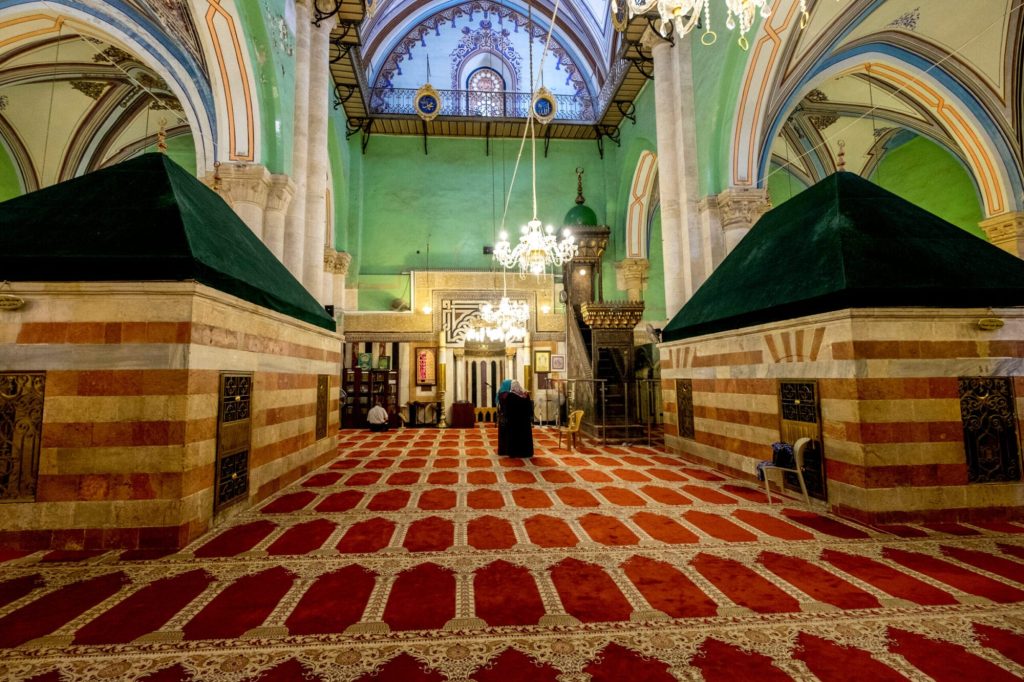
Abraham in the Book of Genesis
The narrative in the Book of Genesis revolves around the themes of posterity and land. Abraham is called by God to leave the house of his father Terah and settle in the land originally given to Canaan but which God now promises to Abraham and his progeny. Various candidates are put forward who might inherit the land after Abraham; and, while promises are made to Ishmael about founding a great nation, Isaac, Abraham’s son by his half-sister Sarah, inherits God’s promises to Abraham.
Similarly, in Christianity, the genealogy of Jesus is traced to Isaac; and Abraham’s near-sacrifice of Isaac is seen as a foreshadowing of Jesus’ sacrifice on the cross. In Islam, it is Ishmael, Abraham’s firstborn son, born of Hagar, who is viewed as the fulfillment of God’s promise, and the Prophet Muhammad is his descendant.
Then it is told in the Book of Genesis Abraham purchases a tomb (the Cave of the Patriarchs) at Hebron to be Sarah’s grave; thus establishing his right to the land; and, in the second generation, his heir Isaac is married to a woman from his own kin; thus ruling the Canaanites out of any inheritance. Later Abraham marries Keturah and has six more sons; but, on his death, when he is buried beside Sarah; it is Isaac who receives “all Abraham’s goods”, while the other sons receive only “gifts” (Genesis 25:5–8).
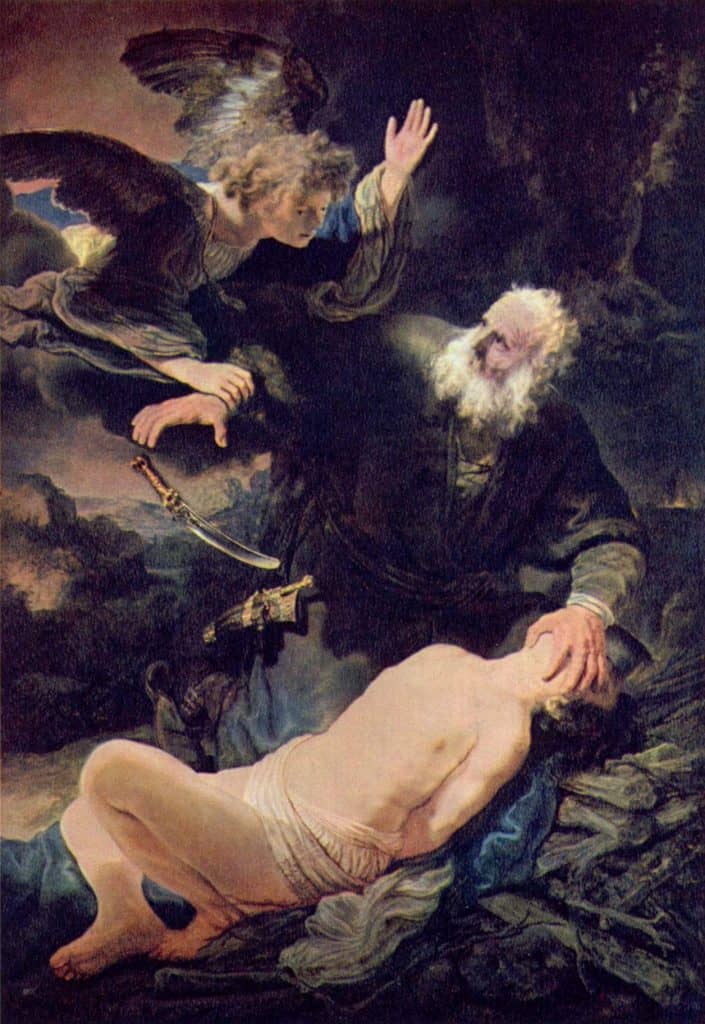
Abram, His Origins and Calling
Terah, the ninth in descent from Noah, was the father of three sons: Abram, Nahor, and Haran. The entire family, including grandchildren, lived in Ur of the Chaldees. According to a Jewish post, canonical exegetic texts (Midrash); Abram worked in Terah’s idol shop in his youth. Haran was the father of Lot, and thus Lot was Abram’s nephew. Haran died in his native city, Ur of the Chaldees.
Abram married Sarah (Sarai), who was barren. Terah, with Abram, Sarai, and Lot, then departed for Canaan but settled in a place named Haran, where Terah died at the age of 205 (Genesis 11:27-32). Then God had told Abram to leave his country and kindred and go to a land that he would show him, and promised to make of him a great nation, bless him, make his name great; bless them that bless him, and curse them who may curse him (Genesis 12). So Abram was 75 years old when he left Haran with his wife Sarai; his nephew Lot, and the substance and souls that they had acquired, and traveled to Shechem (Modern Nablus) in Canaan. Then he pitched his tent in the east of Bethel.
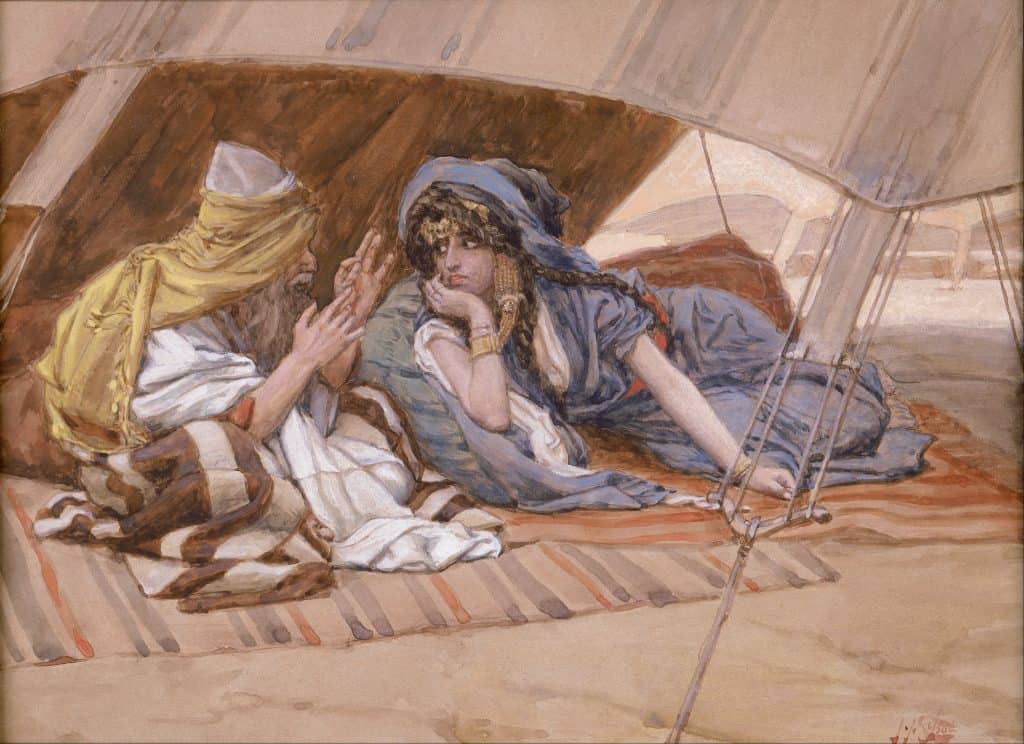
Going Down to Egypt
There was a severe famine in the land of Canaan so that Abram and Lot and their households traveled to Egypt. On the way, Abram told Sarai to say that she was his sister so that the Egyptians would not kill him. When they entered Egypt, the Pharaoh’s officials praised Sarai’s beauty to Pharaoh, and they took her into the palace and gave Abram goods in exchange. God afflicted Pharaoh and his household with plagues, which led Pharaoh to try to find out what was wrong. Upon discovering that Sarai was a married woman; Pharaoh demanded that Abram and Sarai leave.
Abram and Lot separate
When they lived for a while in the Negev after being banished from Egypt and came back to the Bethel and Ai area, Abram’s and Lot’s sizable herds occupied the same pastures. This became a problem for the herdsmen, who were assigned to each family’s cattle. Eventually, the conflicts between herdsmen had become so troublesome that Abram suggested that Lot choose a separate area; either on the left hand or on the right hand; that there be no conflict amongst brethren. Lot decided to go eastward to the plain of Jordan; where the land was well watered everywhere as far as Zoar; and he dwelled in the cities of the plain toward Sodom. So Abram went south to Hebron and settled in the plain of Mamre; where he built another altar to worship God.
Chedorlaomer
During the rebellion of the Jordan River cities; Sodom and Gomorrah, against Elam (Genesis 14) Abram’s nephew, Lot, was taken prisoner along with his entire household by the invading Elamite forces. The Elamite army came to collect the spoils of war, after having just defeated the king of Sodom’s armies. Lot and his family, at the time; were settled on the outskirts of the Kingdom of Sodom which made them a visible target.
One person who escaped capture came and told Abram what happened. Once Abram received this news, he immediately assembled 318 trained servants. Abram’s force headed north in pursuit of the Elamite army, who were already worn down from the Battle of Siddim. When they caught up with them at Dan, Abram devised a battle plan by splitting his group into more than one unit and launched a night raid. Not only were they able to free the captives; Abram’s unit chased and slaughtered the Elamite King Chedorlaomer at Hobah, just north of Damascus. They freed Lot, as well as his household and possessions, and recovered all of the goods from Sodom that had been taken.
Masada Sunrise Tour

Upon Abram’s return, Sodom’s king came out to meet with him in the Valley of Shaveh, the “king’s dale”. Also, Melchizedek king of Salem (Jerusalem), a priest of God Most High, brought out bread and wine and blessed Abram and God. Abram then gave Melchizedek a tenth of everything. The king of Sodom then offered to let Abram keep all the possessions if he would merely return his people. Abram refused any deal from the king of Sodom, other than the share to which his allies were entitled (Genesis 14).
Abram and the Covenant of the Pieces
The voice of the Lord came to Abram in a vision and repeated the promise of the land and descendants as numerous as the stars. Abram and God made a covenant ceremony, and God told of the future bondage of Israel in Egypt. God described to Abram the land that his offspring would claim: the land of the Kenites, Kenizzites, Kadmonites, Hittites, Perizzites, Rephaims, Amorites, Canaanites, Girgashites, and Jebusites.
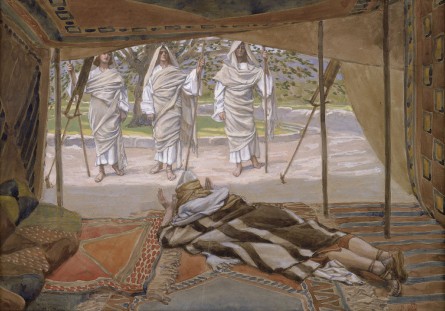
Hagar
Abram and Sarai tried to make sense of how he would become a progenitor of nations; because after 10 years of living in Canaan, no child had been born. Sarai then offered her Egyptian handmaiden; Hagar, to Abram with the intention that she would bear him a son. After Hagar found she was pregnant; she began to despise her mistress, Sarai. Sarai responded by mistreating Hagar, and Hagar fled into the wilderness. An angel spoke with Hagar at the fountain on the way to Shur.
He instructed her to return to Abram’s camp and that her son would be “a wild ass of a man; his hand shall be against every man, and every man’s hand against him; and he shall dwell in the face of all his brethren.” She was told to call her son Ishmael. Hagar then called God who spoke to her “El-roi”, (“Thou God seest me:” KJV). She then did as she was instructed by returning to her mistress in order to have her child. Abram was 86 years of age when Ishmael was born (Genesis 16).
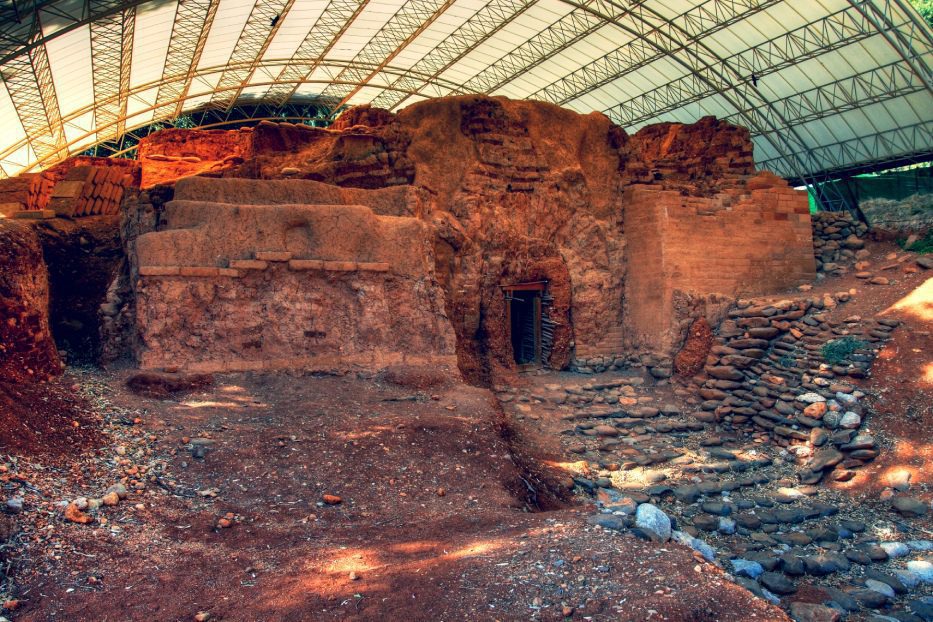
Sarah
Thirteen years later, when Abram was 99 years of age, God declared Abram’s new name: “Abraham” – “a father of many nations”.(Genesis 17) Abraham then received the instructions for the covenant, of which circumcision was to be the sign. God declared Sarai’s new name: “Sarah”, blessed her, and told Abraham, “I will give thee a son also of her”. Abraham laughed, and “said in his heart, ‘Shall a child be born unto him that is a hundred years old? and shall Sarah, that is ninety years old, bear [a child]?'” Immediately after Abraham’s encounter with God, he had his entire household of men, including himself (age 99) and Ishmael (age 13), circumcised.
Three Visitors
Not long afterward, during the heat of the day, Abraham had been sitting at the entrance of his tent by the terebinths of Mamre. He looked up and saw three men in the presence of God. Then he ran and bowed to the ground to welcome them. Abraham then offered to wash their feet and fetch them a morsel of bread; to which they assented. Abraham rushed to Sarah’s tent to order ash cakes made from choice flour, then he ordered a servant-boy to prepare a choice calf. When all was prepared; he set curds, milk, and the calf before them, waiting on them, under a tree, as they ate (Genesis 18).
One of the visitors told Abraham that upon his return next year, Sarah would have a son. While at the tent entrance, Sarah overheard what was said and she laughed to herself about the prospect of having a child at their ages. The visitor inquired of Abraham why Sarah laughed at bearing a child at her age, as nothing is too hard for God. Frightened, Sarah denied laughing.
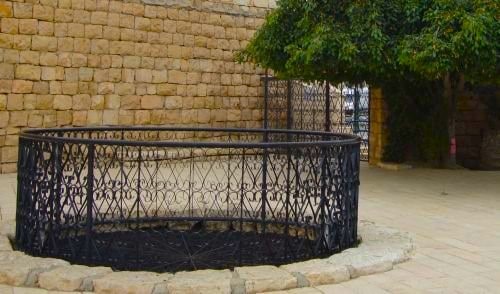
Abraham’s Plea
After eating, Abraham and the three visitors got up. They walked over to the peak that overlooked the ‘cities of the plain’ to discuss the fate of Sodom and Gomorrah for their detestable sins that were so great; it moved God to action. Because Abraham’s nephew was living in Sodom; God revealed plans to confirm and judge these cities. At this point, the two other visitors left for Sodom. Then Abraham turned to God and pleaded decrementally with Him (from fifty persons to less) that “if there were at least ten righteous men found in the city, would not God spare the city?” For the sake of ten righteous people, God declared that he would not destroy the city.
When the two visitors arrived in Sodom to conduct their report, they planned on staying in the city square. However, Abraham’s nephew, Lot, met with them and strongly insisted that these two “men” stay at his house for the night. A rally of men stood outside of Lot’s home and demanded that Lot bring out his guests so that they may “know” (v. 5) them. However, Lot objected and offered his virgin daughters who had not “known” (v. 8) man to the rally of men instead.
They rejected that notion and sought to break down Lot’s door to get to his male guests (Genesis 19) thus confirming the wickedness of the city and portending their imminent destruction. Early the next morning, Abraham went to the place where he stood before God. He “looked out toward Sodom and Gomorrah” and saw what became of the cities of the plain, where not even “ten righteous” (v. 18:32) had been found, as “the smoke of the land went up as the smoke of a furnace.
Abimelech
Abraham settled between Kadesh and Shur in what the Bible anachronistically calls “the land of the Philistines”. While he was living in Gerar; Abraham openly claimed that Sarah was his sister. Upon discovering this news, King Abimelech had her brought to him. God then came to Abimelech in a dream and declared that taking her would result in death because she was a man’s wife.
Abimelech had not laid hands on her, so he inquired if he would also slay a righteous nation, especially since Abraham had claimed that he and Sarah were siblings. In response, God told Abimelech that he did indeed have a blameless heart and that is why he continued to exist. However, should he not return the wife of Abraham back to him, God would surely destroy Abimelech and his entire household. Abimelech was informed that Abraham was a prophet who would pray for him (Genesis 20).
Early the next morning, Abimelech informed his servants of his dream and approached Abraham inquiring as to why he had brought such great guilt upon his kingdom. Abraham stated that he thought there was no fear of God in that place, and that they might kill him for his wife. Then Abraham defended what he had said as not being a lie at all: “And yet indeed she is my sister; she is the daughter of my father, but not the daughter of my mother, and she became my wife.”
Abimelech Retunrs Sarah to Abraham
Abimelech returned Sarah to Abraham, and gave him gifts of sheep, oxen, and servants; and invited him to settle wherever he pleased in Abimelech’s lands. Further, Abimelech gave Abraham a thousand pieces of silver to serve as Sarah’s vindication before all. Abraham then prayed for Abimelech and his household, since God had stricken the women with infertility because of the taking of Sarah.
The Sworn Oath at Beersheba
After living for some time in the land of the Philistines, Abimelech and Phicol, the chief of his troops, approached Abraham because of a dispute that resulted in a violent confrontation at a well. Abraham then reproached Abimelech due to his Philistine servant’s aggressive attacks and the seizing of Abraham’s well. Abimelech claimed ignorance of the incident. Then Abraham offered a pact by providing sheep and oxen to Abimelech. Further, to attest that Abraham was the one who dug the well, he also gave Abimelech seven ewes for proof. Because of this sworn oath, they called the place of this well: Beersheba. After Abimelech and Phicol headed back to Philistia; Abraham planted a tamarisk grove in Beersheba and called upon “the name of the LORD; the everlasting God.
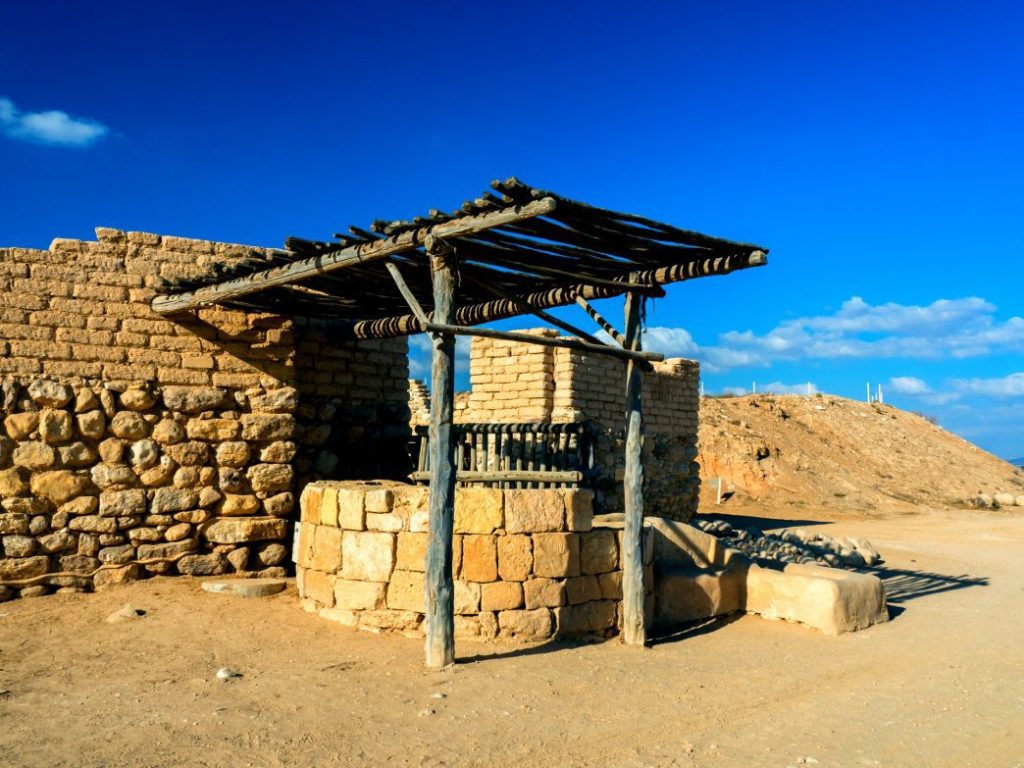
Isaac
As had been prophesied in Mamre the previous year, Sarah became pregnant and bore a son to Abraham, on the first anniversary of the covenant of circumcision. Abraham was “a hundred years old” when his son whom he named Isaac was born; and he circumcised him when he was eight days old For Sarah, the thought of giving birth and nursing a child, at such an old age, also brought her much laughter, as she declared, “God hath made me laugh so that all who hear will laugh with me.” Isaac continued to grow and on the day he was weaned, Abraham held a great feast to honor the occasion. During the celebration, however, Sarah found Ishmael mocking; an observation that would begin to clarify the birthright of Isaac.
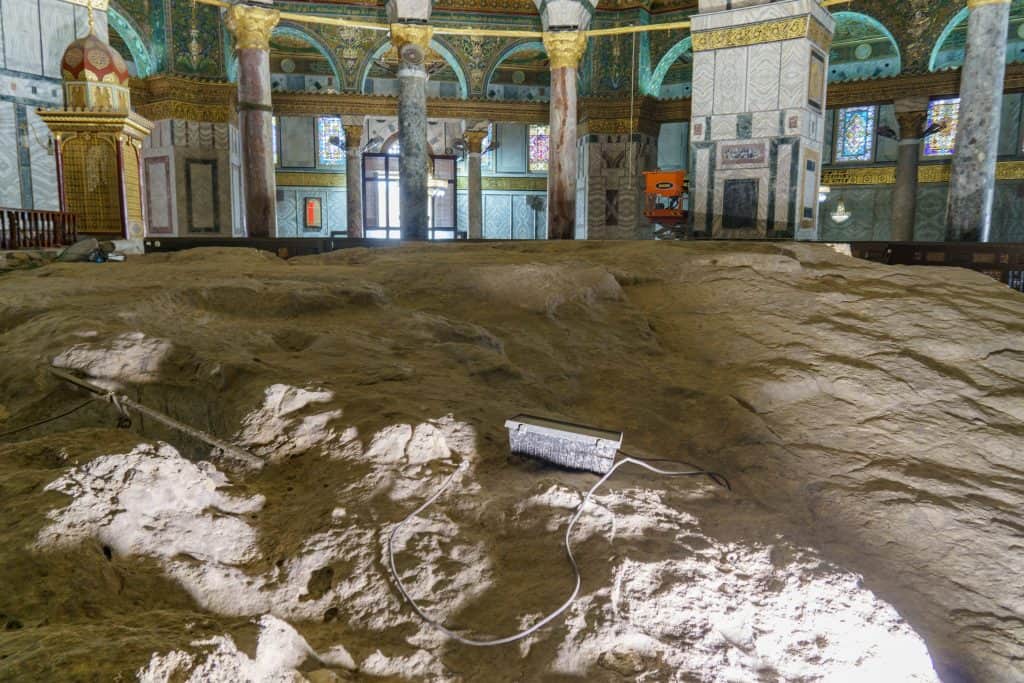
Ishmael
Ishmael was fourteen years old when Abraham’s son Isaac was born to Sarah. When she found Ishmael teasing Isaac, Sarah told Abraham to send both Ishmael and Hagar away. She declared that Ishmael would not share in Isaac’s inheritance. Abraham was greatly distressed by his wife’s words and sought the advice of his God. God told Abraham not to be distressed but to do as his wife commanded. God reassured Abraham that “in Isaac shall seed be called to thee.”He also said that Ishmael would make a nation, “because he is thy seed”.
Early the next morning, Abraham brought Hagar and Ishmael out together. He gave her bread and water and sent them away. The two wandered in the wilderness of Beersheba until her bottle of water was completely consumed. In a moment of despair, she burst into tears. After God heard the boy’s voice; an angel of the Lord confirmed to Hagar that he would become a great nation, and will be “living on his sword”. A well of water then appeared so that it saved their lives. As the boy grew, he became a skilled archer living in the wilderness of Paran. Eventually, his mother found a wife for Ishmael from her home country, the land of Egypt.
Binding of Isaac
At some point in Isaac’s youth, Abraham was commanded by God to offer his son up as a sacrifice in the land of Moriah. The patriarch traveled three days until he came to the mount that God told him of. He then commanded the servants to remain while he and Isaac proceeded alone into the mount. Isaac carried the wood upon which he would be sacrificed. Along the way, Isaac asked his father where the animal for the burnt offering was, to which Abraham replied “God will provide himself a lamb for a burnt offering”.
Just as Abraham was about to sacrifice his son, he was interrupted by the angel of the Lord, and he saw behind him a “ram caught in a thicket by his horns”, which he sacrificed instead of his son. The place was later named Jehovah-Jireh. For his obedience, he received another promise of numerous descendants and abundant prosperity. After this event, Abraham went to Beersheba.
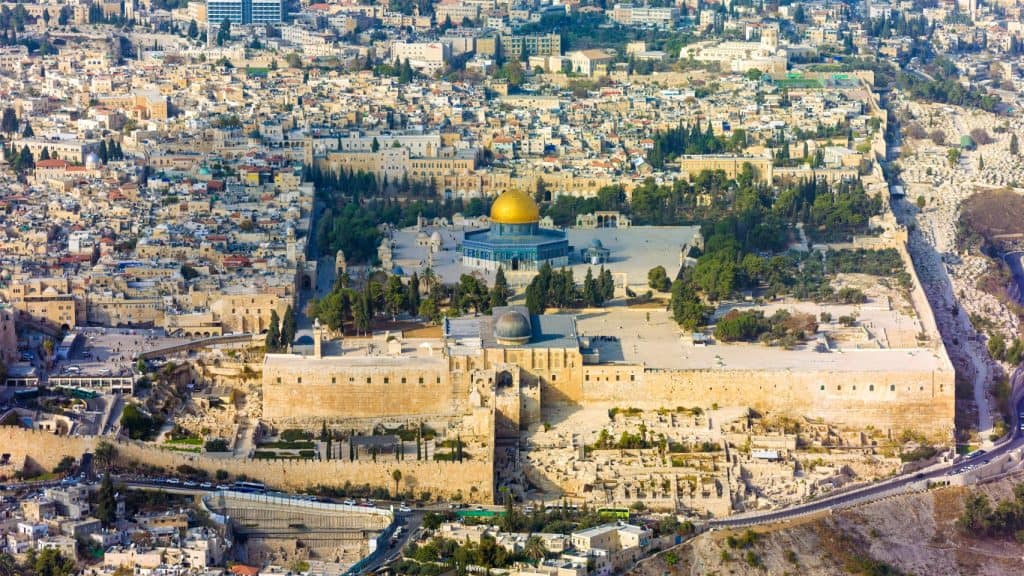
Later Years
Sarah died, and Abraham buried her in the Cave of the Patriarchs (the “cave of Machpelah”); near Hebron which he had purchased along with the adjoining field from Ephron the Hittite. After the death of Sarah, Abraham took another wife, a concubine named Keturah, by whom he had six sons.
According to the Bible, reflecting the change of his name to “Abraham” meaning “a father of many nations”, Abraham is considered to be the progenitor of many nations mentioned in the Bible, among others the Israelites, Ishmaelites, Edomites, Amalekites, Kenizzites, Midianites and Assyrians and through his nephew Lot, he was also related to the Moabites and Ammonites. Abraham lived to see his son marry Rebekah and to see the birth of his twin grandsons, Jacob and Esau. He died at age 175 and was buried in the cave of Machpelah by his sons Isaac and Ishmael.
Historicity and Origins of the Narrative
In the early and middle 20th century, leading archaeologists such as William F. Albright and biblical scholars such as Albrecht Alt believed that the patriarchs and matriarchs were either real individuals or believable composites of people who lived in the “patriarchal age”, the 2nd millennium BCE. But, in the 1970s, new arguments concerning Israel’s past and the biblical texts challenged these views; these arguments can be found in Thomas L. Thompson’s The Historicity of the Patriarchal Narratives (1974), and John Van Seters’ Abraham in History and Tradition (1975). Thompson, a literary scholar, based his argument on archaeology and ancient texts.
His thesis centered on the lack of compelling evidence that the patriarchs lived in the 2nd millennium BCE, and noted how certain biblical texts reflected first millennium conditions and concerns. Van Seters examined the patriarchal stories and argued that their names, social milieu, and messages strongly suggested that they were Iron Age creations. By the beginning of the 21st century, archaeologists had given up hope of recovering any context that would make Abraham, Isaac, or Jacob credible historical figures.
Religious Traditions
Abraham is given a high position of respect in three major world faiths, Judaism, Christianity and Islam. First, in Judaism, he is the founding father of the Covenant, the special relationship between the Jewish people and God – leading to the belief that the Jews are the Chosen People of God. Also in Christianity, the Apostle Paul taught that Abraham’s faith in God – preceding the Mosaic law – made him the prototype of all believers, circumcised and uncircumcised. In Islam, the prophet Muhammad claimed Abraham, whose submission to God constituted Islam, was a “believer before the fact” and undercut Jewish claims to an exclusive relationship with God and the Covenant.







